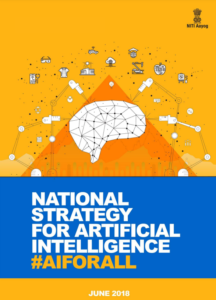Artificial intelligence (AI) is revolutionizing industries worldwide, and its impact on healthcare is nothing short of transformative. AI in healthcare is enhancing diagnostics, personalizing treatment plans, optimizing hospital operations, and even aiding in the fight against global pandemics. This blog post delves into the various applications of AI in healthcare and how it is changing the medical landscape.
Enhanced Diagnostics
AI in healthcare is significantly improving the accuracy and speed of diagnostics. Traditional diagnostic methods often rely on the subjective judgment of medical professionals, which can lead to variability in diagnosis. AI, particularly through machine learning and deep learning algorithms, can analyze medical images and data with remarkable precision.
For instance, AI-powered imaging tools can detect abnormalities in X-rays, MRIs, and CT scans faster and sometimes more accurately than human radiologists. These tools can identify early signs of diseases such as cancer, enabling earlier intervention and better patient outcomes. Furthermore, AI algorithms can analyze pathology slides to detect cancer cells, reducing the time required for diagnosis and increasing the chances of successful treatment.
Personalized Treatment Plans
AI in healthcare is also transforming the approach to treatment by personalizing medical care. Each patient is unique, and AI can analyze vast amounts of data from electronic health records (EHRs) to tailor treatment plans to individual needs. By considering factors such as genetics, lifestyle, and previous medical history, AI can recommend the most effective treatment options for each patient.
For example, AI algorithms can help oncologists choose the best chemotherapy drugs for cancer patients based on their genetic profile and response to previous treatments. This personalized approach minimizes adverse effects and enhances the efficacy of treatments, leading to better patient outcomes.
Optimizing Hospital Operations
Operational efficiency in hospitals is crucial for providing high-quality care. AI in healthcare is optimizing various aspects of hospital operations, from managing patient flow to resource allocation. Predictive analytics, powered by AI, can forecast patient admissions, enabling hospitals to better manage staffing levels and reduce wait times.
AI can also streamline administrative tasks, such as scheduling appointments and managing medical records, freeing up healthcare professionals to focus on patient care. Additionally, AI-powered chatbots and virtual assistants can handle routine inquiries, appointment bookings, and medication reminders, improving patient engagement and satisfaction.
Drug Discovery and Development
The process of discovering and developing new drugs is time-consuming and expensive. AI in healthcare is accelerating this process by analyzing vast datasets to identify potential drug candidates and predict their efficacy and safety. Machine learning models can simulate how different compounds interact with biological targets, significantly reducing the time required for drug discovery.
AI also aids in clinical trials by identifying suitable candidates and predicting potential outcomes, thus optimizing trial design and execution. This not only speeds up the development of new treatments but also ensures that they are safe and effective for patients.
Fighting Pandemics
The recent COVID-19 pandemic highlighted the critical role of AI in healthcare. AI was instrumental in tracking the spread of the virus, predicting outbreaks, and identifying high-risk areas. By analyzing data from various sources, including social media, travel patterns, and health records, AI provided valuable insights for public health authorities to implement timely interventions.
AI also played a key role in developing vaccines and treatments for COVID-19. Machine learning algorithms analyzed the virus’s genetic makeup and helped researchers understand its behavior, accelerating the development of effective vaccines.
Remote Monitoring and Telemedicine
The rise of telemedicine and remote monitoring has been significantly bolstered by AI in healthcare. Wearable devices and health apps equipped with AI can continuously monitor patients’ vital signs, detect anomalies, and alert healthcare providers in real-time. This is particularly beneficial for managing chronic conditions such as diabetes and heart disease, where continuous monitoring is crucial.
AI-powered telemedicine platforms enable virtual consultations, allowing patients to receive medical advice and treatment without the need for in-person visits. This not only improves access to healthcare, especially in remote areas, but also reduces the burden on healthcare facilities.
Conclusion
The integration of AI in healthcare is creating a paradigm shift, offering unparalleled advantages in diagnostics, treatment, hospital operations, drug discovery, and more. As AI technology continues to advance, its applications in healthcare will only expand, opening up new possibilities and transforming the way medical care is delivered. The future of healthcare is undoubtedly intelligent, and those who embrace AI will be at the forefront of this exciting revolution.
AI in healthcare is not just enhancing existing processes but also enabling entirely new ways of providing care, ensuring that the medical field is more efficient, effective, and patient-centric. Embracing this technology is essential for staying competitive and delivering the best possible care in the rapidly evolving healthcare landscape.


[…] The Transformative Impact of AI in Healthcare […]